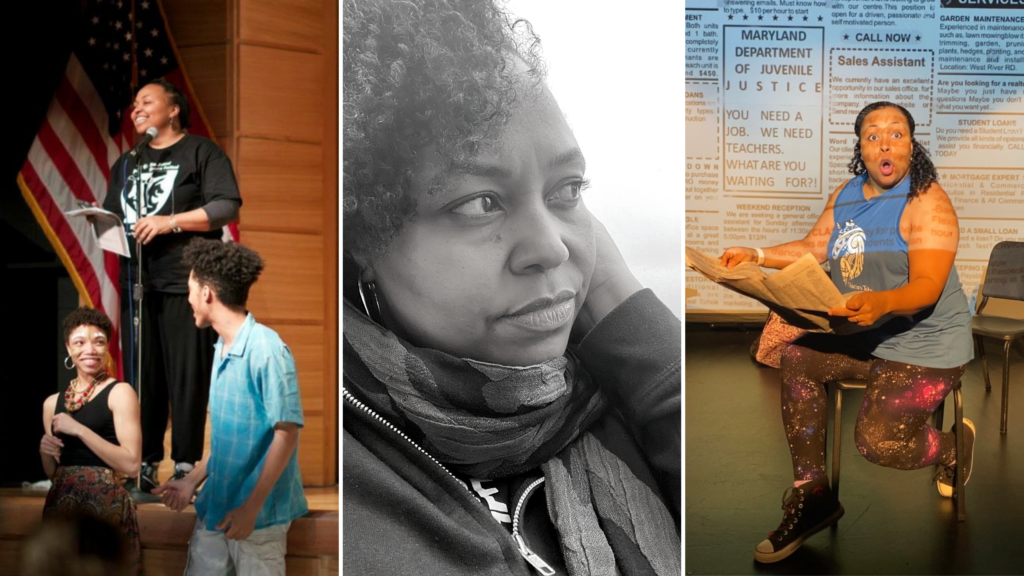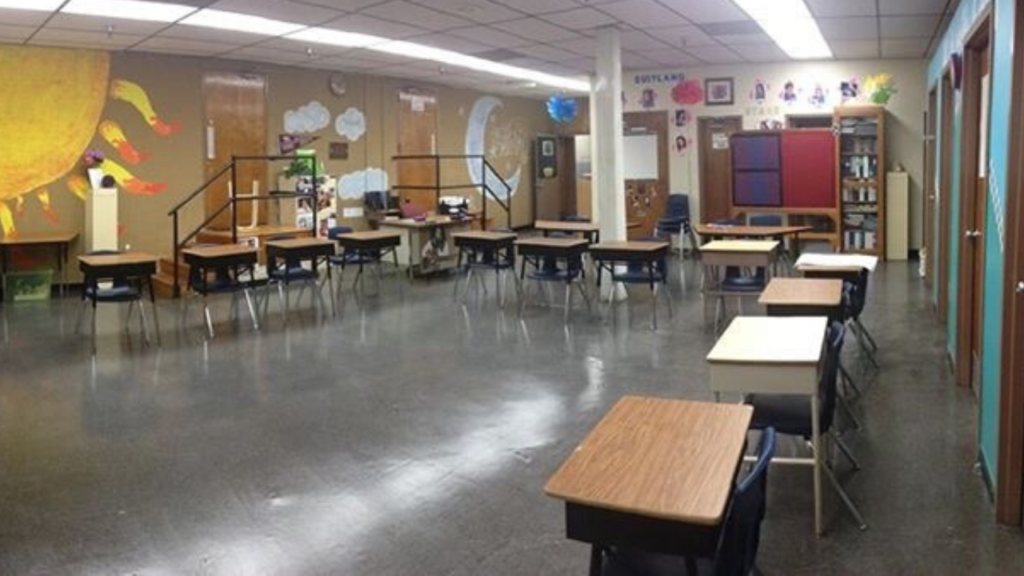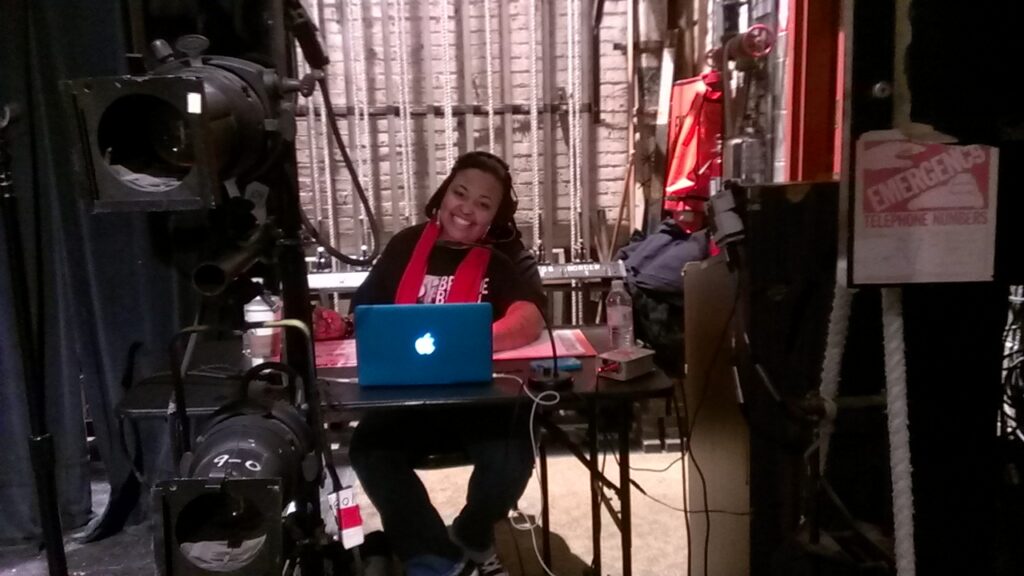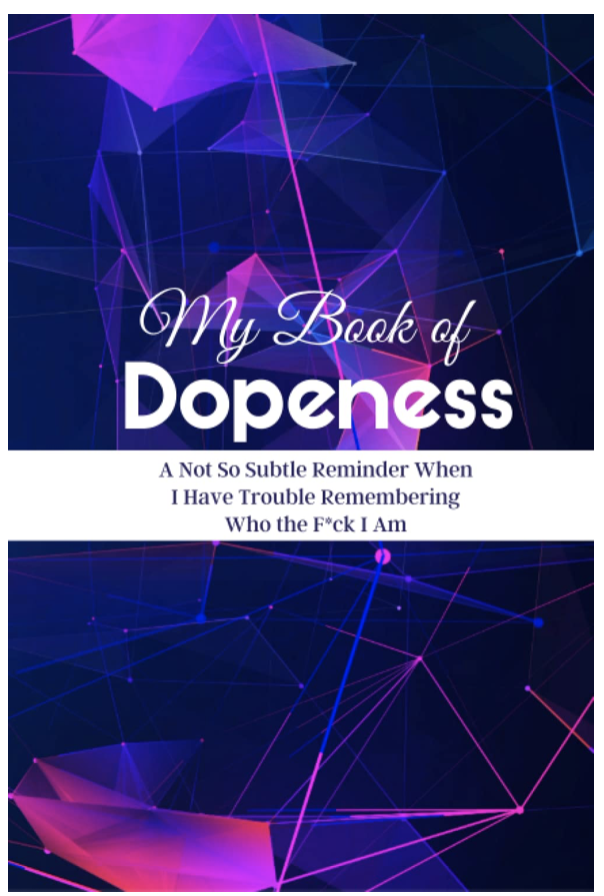
Let’s talk Teachers and Imposter Syndrome
Can I let you in on a secret? I am a professional actress AND an educational consultant. Wait, that isn’t the secret–most folks know that about me by now. My secret is I struggled with imposter syndrome. I used to be self-conscious about my dual careers and worked to make sure that one didn’t find out about the other. I believed that I wasn’t enough in either space and if people knew, they would think less of me in that particular world.
Storytime! 💜
Life in the Classroom
I loved my theatre classroom. The space my students and I affectionately called ‘The Green Room” was a space of community, joyful learning, and in-depth dives into the human psyche. While many people see Theatre as “playtime”, my students and I worked on understanding human behavior (character study), the history of theatre and its effects on society, design and color theory, and complex math/solving intricate real-world problems (stagecraft). I loved it–like FREAKIN’ LOVED IT. I spent so many hours at the school that I had keys to the auditorium and a pillow in my trunk. To this day, I can tell you every nook and cranny in that place.

The hard reality I faced while in the classroom however was that many school leaders failed to see the value in the arts. Music, Dance, Visual Art, and Theatre were treated as a necessary evil at best. At worst, it was seen as a complete money and time suck. Arts teachers are often made to feel like the “less than” subjects– and let me tell you, if not careful, that can breed imposter syndrome…or resentment.
In the Professional Theatre World

I shine in the professional theatre world… and yet there was always the thought in the back of my mind that I wasn’t “really” a professional actor/director/producer because my day job was as a teacher. I thought that unless it was my ONLY job, I was somehow “less than” my peers who devoted their time solely to the art form. While working on international touring shows and acting in stage plays and industrials, I rarely talked about my teaching. I didn’t want anyone to know that I was an “imposter inside of their world”.
How I Almost Sabatoged My Work with Other Teachers
These toxic thoughts bled over into my educational consulting business. I was so hesitant to use what I knew worked…the one thing that helped me heal from my own burnout and compassion fatigue—my superpower—my CREATIVITY. For that, I struggled until I decided I needed to make a change. When I pushed past the fences that held me and allowed myself to believe in my worth and the worth of my work, I have become INFINITELY happier and ultimately more successful!
*******************************************************************************************************************
What is Imposter Syndrome?
Simply put, imposter syndrome is when you doubt your abilities to the point that you feel like a fraud. You fear that people will “find out” that you aren’t good at your job and you begin to feel that you aren’t worthy of the accolades you’ve been given.
New teachers can sometimes fall into the trap of imposter syndrome, worrying that they do not have what it takes to be a teacher. Experienced teachers may feel it most when they are being observed—fearing that the principal will “find out that they can’t really teach”. It can present itself in the best of teachers when they dismiss their success and talent as just luck.
Consequences of Imposter Syndrome
Imposter syndrome can lead to some serious consequences. It can harm teachers’ emotional well-being by continual self-doubt, leading to low levels of self-efficacy. It can make it difficult for them to appreciate their profession and feel fulfilled. People who suffer from imposter syndrome are more likely to suffer from despair and anxiety, according to a study published in the Journal of Internal Medicine. Imposter syndrome also affects a person’s work performance and can lead to burnout—-something that is already plaguing a very large number of educators.
When teachers suffer from imposter syndrome, there is an increased likelihood that they won’t take steps towards leadership, further decreasing their earning potential and growth in the profession.
What Can You Do to Combat Imposter Syndrome?
Here are three simple ways to address and combat your imposter syndrome and negative self talk!
Question It
When you feel that inner voice diminishing your accomplishments or telling you that you are not good enough, examine those thoughts for the truth. Ask yourself these questions:
Write it Down
Keep a running list of your accomplishments. Whenever you complete a task, no matter how large or how small, add it to the list. If you are consistent with this practice, you will create a living document that serves as proof of your accomplishments and times you’ve made yourself proud.
Affirmations
Create a list of affirmations that are meaningful for you! Here are a few that may spark your imagination:
Are ready to confront your negative self-talk? Get concrete evidence that you are DOPE and can achieve anything you put your mind and heart to! Grab a copy of this workbook today!

***I want to take a moment to mention that when the concept of imposter syndrome was developed, the impacts of systemic racism, xenophobia, classism, and other biases and methods of exclusion were not studied. Simple tools, techniques, and “hacks” will not be able to overcome these very real challenges, which are the result of broken systems and ideas. They can only be addressed by getting to the root of these biases and making true change in society.


